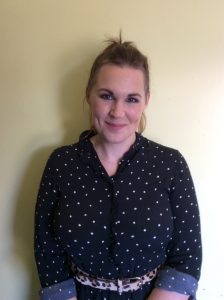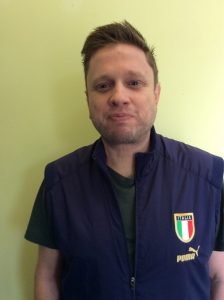Meet the Team



Class Organisation
The children in Key Stage 1 are organised in to two classes.
- Year 1 are taught by Mrs Priest on Mondays, Tuesdays, Thursdays and Fridays, with Mr Gargiulo teaching on Wednesdays.
- Mr Gargiulo teachers Year 2 on Mondays and Tuesdays and Mrs Rowntree teaches Year 2 on Wednesdays, Thursdays and Fridays.
Communication
Homework and other class information is regularly sent home using ParentPay, which is also how you can get the weekly school newsletter, and all classes hold Parents’ Evenings where you can discuss your child or children’s progress.
Please do email the office as soon as possible if you have any concerns regarding your child, however trivial they may seem. These will be passed onto us. We are always happy to help and can also arrange to meet with you at a mutually convenient time. We will endeavour to reply to these as soon as possible (usually 2 to 3 days) but will obviously be unable to check or reply during the school day or during holiday periods. Anyone needing a quick response should contact the school office in the usual way.
Our Learning
As a school, we take a thematic approach to planning for the new curriculum. Each term will have a theme to engage and excite the children and sometimes we will have a celebration event at the end, which parents will often be invited to share in. Wherever possible, activities and tasks in individual curriculum areas will link to the termly theme, helping the children to build cross-curricular links between different areas of knowledge.
The children in all classes will be taught using a range of methods, sometimes in groups and sometimes as a whole class. There will also be occasions when they are pulled together as a whole year group for certain activities. Staffing will be deployed creatively and flexibly to ensure effective delivery of all aspects of the curriculum.
All teaching will be differentiated to meet the needs of each individual within the group, class or cohort. This ensures we provide children with learning experiences which best suit their needs at any given time, based on prior assessment and knowledge of their individual ways of learning.For more detail of our curriculum in Key Stage 1 please take a look at the Curriculum area of our website.
Key Stage 1 Routines
- Playtime snacks: As a reminder, your child can bring in fresh or dried fruit for a playtime snack although we do have a daily delivery of free fruit for the infant children.
- Milk can be paid for via ParentPay please contact the school office for more information.
- Toys in school: As the children move into Key Stage 1 we have found that the presence of toys in school meant that staff were having to deal with issues surrounding the safekeeping, sharing and losing of toys after almost every playtime and this took up valuable teaching and learning time. Therefore we are requesting children in Key Stage 1 do not bring toys into school. There is a wide range of play equipment available for children to use at playtimes, as well as the older children who are trained as play leaders, and who organise and play a variety of games with the younger children.
- We are allowing children to bring in their own pencil cases, notebooks and colouring books which they are enjoying at playtimes, which might include a small named pencil case containing pens or pencils, a named notebook to write or draw in, or a named colouring book.
- Please do not allow children to bring in any items of value as they do sometimes get lost or broken.
- We also provide art materials at play for the children to use – these will be out when the weather is dry
P.E.
Class PE days are as follows:
- Year 1 – Tuesday and Friday
- Year 2 – Monday and Friday
P.E. kit is navy/black shorts, a white t-shirt and a pair of plimsolls. In the Autumn and Summer term we often go outside for P.E. so you may wish to include a pair of long trousers, a jumper and more robust footwear such as trainers in your child’s P.E. bag.
We suggest that you send your child’s P.E. kit in at the beginning of the week since, in addition to P.E. session, children sometimes require their kit for other activities such as visiting sports coaches and drama lessons.
Jewellery is not permitted for PE and children with long hair will need to use a bobble. Please ensure all items are individually named, remembering that any names that are inked in can fade easily in the wash.
Water Bottles
Pupils are encouraged to drink water at every play time and can also ask to have a drink during lesson times. Water bottles are kept in the classroom and the children are given the responsibility of ensuring their water bottle is filled from the water fountain.
Reading
Reading – split into two categories
Each week your child will be given a home reading book:
- Yr1 this is sharing story – this is to be swapped on a Monday
- Yr2 this a book matched to their phonic level – this is to be swapped on a Friday
Each week in school, your child will read with an adult. This book is known as a guided reading book and at the end of the week on the Friday, an electronic copy of the book that your child has read that week, will be sent out. This is to celebrate your child’s learning.
We ask that as part of their homework, children read these two books with an adult as many times as possible per week.
In both classes we also have a library of sharing books. Your child is welcome to take home one of these books at any point in the week and bring back to swap when they have read this with you. These are books for you to talk and read through together to develop a love of reading. Please note, the sharing books are optional and there if you are wanting to borrow a book to read.
It may take a few days at the start of term to organise your child’s reading books and if you have any worries or concerns regarding your child’s reading at any stage, please feel free to come and speak to us.
Spellings
Year 2 only (Year 1 will be in the Spring term)
Spellings for the week will be sent home on a Friday and those same spellings will be tested on the following Friday. Please note, a copy of all the spellings for each half term are available on the school website for you, but a paper copy of the ten spellings for each week will still be given out at the start of each half term. These spellings follow the spelling rules for the end of KS1 and Year 2 pupils will put these patterns into practice during their phonics sessions each week.
Maths – Numbots and Times Tables Rockstars
Children have been given their NumBots/TTRockstars login details at the start of the term. If you would like them re-sending, then please do email and let us know.
Children can log in on a device at home and work their way through the sections and levels on NumBots (for Year 1 and Year 2 pupils) or develop their knowledge of times tables on TTRockstars (Year 2 pupils). The focus for Year 2 is for pupils to know their 2, 5 and 10 time tables and corresponding divisions by the end of KS1. Once your child is secure in this, then they can begin to learn the others.
How to help your child at home
Many parents are keen to further support their child’s learning at home and so we have provided the following material to aid you in helping your child at home:
- Reading Question Mat – This gives good examples of types of questions to ask your child when you read with them at home. This ensures they develop their comprehension skills as well as their decoding skills for reading.
- Phonics Rainbows of Sounds– These dyslexia-friendly ‘rainbows of sounds’ give the phase 3 and phase 5 sounds that we would expect most pupils to recognise and decode within words by the end of year 1
- Common Exception Words for Reading and Spelling– This lists the first 100 high frequency words for reading and spellings
- KS1 Maths Mat– This is a useful table top mat, containing a 100 square, that can be used by your child when doing maths homework as well as for reinforcing some key mathematical concepts and language
School Visits
We usually go on at least one school visit during the year, which will link to work being undertaken in school at the time. As well as out of school visits we often have visitors who come into school to work with us on activities across many different subject areas.
For some visits we may ask for a voluntary financial contribution if you are able and we always appreciate your continued support in helping to provide varied and exciting educational experiences across the curriculum.
Parent Helpers
Over the course of the year we will be doing a wide variety of activities, some of which require extra adult support either in or out of the classroom. When there are opportunities for parents to get involved, we will send out a note via Parentmail giving details and we simply ask any interested helpers to get in touch with us to say they are available to help. We always look forward to welcoming parent helpers into the classroom to work with us on a variety of different projects throughout the course of the year and often parent support is vital to enable to provide certain learning experiences for the children.
If you would like to come into school on a regular basis to work in a key stage 1 classroom, we always welcome this support. This type of voluntary work requires you to have a full DBS (Disclosure and Barring Service) as well as sign a confidentiality agreement. Please contact the school office if you need copies of the relevant documentation.
